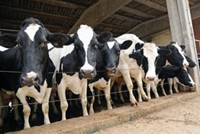Advertisement
Grab your lab coat. Let's get started
Welcome!
Welcome!
Create an account below to get 6 C&EN articles per month, receive newsletters and more - all free.
It seems this is your first time logging in online. Please enter the following information to continue.
As an ACS member you automatically get access to this site. All we need is few more details to create your reading experience.
Not you? Sign in with a different account.
Not you? Sign in with a different account.
ERROR 1
ERROR 1
ERROR 2
ERROR 2
ERROR 2
ERROR 2
ERROR 2
Password and Confirm password must match.
If you have an ACS member number, please enter it here so we can link this account to your membership. (optional)
ERROR 2
ACS values your privacy. By submitting your information, you are gaining access to C&EN and subscribing to our weekly newsletter. We use the information you provide to make your reading experience better, and we will never sell your data to third party members.
Biological Chemistry
Wallabies Beat Cows in Methane Showdown
by Sarah Everts
July 4, 2011
| A version of this story appeared in
Volume 89, Issue 27
When wallabies chow down on a leafy dinner, they produce about one-fifth the amount of methane that cows do per volume of greens digested. Researchers led by Mark Morrison of the Commonwealth Scientific & Industrial Research Organization—Australia’s national science agency—have now tracked down a species of bacteria in the wallaby gut to explain part of this digestive difference, which could be exploited to reduce greenhouse gas emissions (Science, DOI: 10.1126/science.1205760). Like many gut microbes found in mammals, the anaerobic bacterium, named WG-1, helps wallabies break down starch into sugars for energy production. But instead of producing a lot of methane, the bacterium uses genes for hexose catabolism and carbon dioxide fixation to guide production of succinate via the reductive branch of the natural tricarboxylic acid, or Krebs, cycle; succinate is more benign to the environment and useful to the animal. Morrison and his colleagues propose that more research on WG-1 should be done because it might be possible to alter the gut microbiome of cows and other agricultural ruminants to produce significantly less methane.




Join the conversation
Contact the reporter
Submit a Letter to the Editor for publication
Engage with us on Twitter